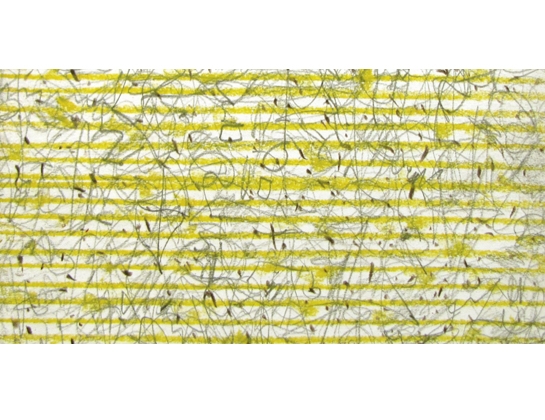 |
 |
|
Heinrich Küpper
Color - November 09 until December 14, 2013
We are proud to announce the second solo show of works by Heinrich Küpper
at Werner Klein Gallery, Cologne. Heinrich Küpper was born 1919 in Düren (Germany).
He died 2009.
In Heinrich Küpper’s world, drawing is an impenetrable labyrinth of disparate lines, condensed upon the paper to form an even weave. These are “drawings by hand” in the most literal sense, since the pencil stroke is made by moving the hand on the small format leaves of paper. The proximity of drawing to the handwritten script has been expressed in 20th century art in the most diverse ways. It seems easiest to associate Küpper with the surrealists of the 1920s, who, believing in the possibility of portraying a higher level of reality, came up with the concept of “écriture automatique” (roughly “automatic writing”), which allowed one “to express the real procedure of thought” (André Breton, Surrealist Manifesto, 1924). Following this idea, André Masson developed the “dessin automatique” (automatic drawing) as an abstract, sketch-like picture which has been culled from sleep or dream states. With Küpper as well, the balance is maintained between the alleged signs of a code to be de-coded and the emotional states in the motion of freely drawn lines. Despite this proximity to surrealism, Küpper’s roots lie first and foremost in tangible reality, his observations becoming independent in his drawings. Signs and structures, but also the colour and rhythm of his weave of lines are perhaps most easily associated with natural experience, for example, the dance of gnats in late summer. The person who finds this image too concrete may take pleasure in the wealth of ornament on these pages.
(Dr. Stefan Kraus, Kolumba Museum, Cologne)
